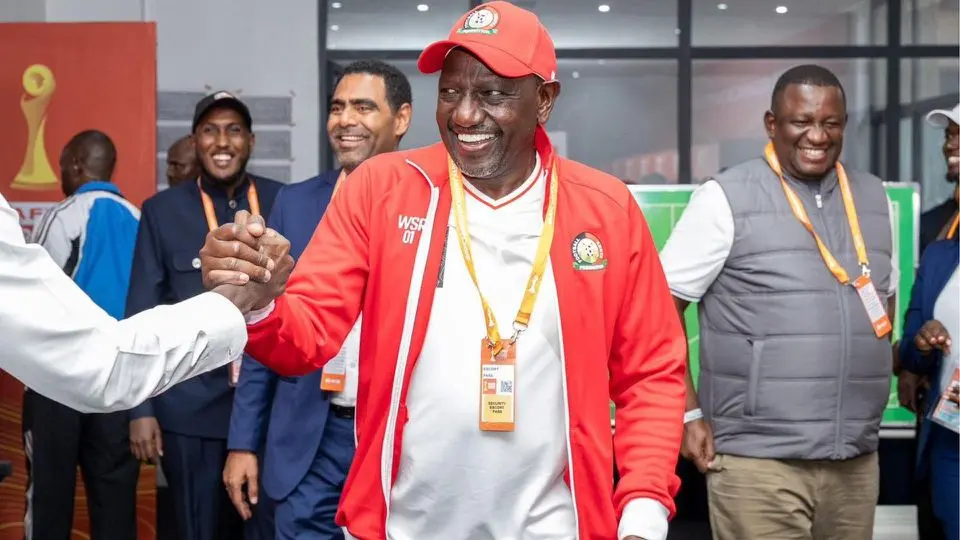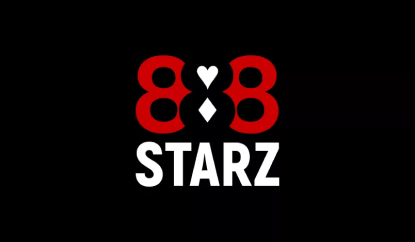In the unfolding story of Harambee Stars and President Ruto’s initiatives, a fresh chapter opened at State House, Nairobi, where football met public policy, and applause met accountability. The head of state celebrated Kenya’s CHAN 2024 run with a promise that stretched beyond the pitch, placing housing keys and long-term athlete welfare at the center of a national conversation.
What the housing offer really means
President William Ruto confirmed that each Harambee Stars player who featured at CHAN 2024 will have the opportunity to own a two-bedroom unit under the Affordable Housing Program, priced at KSh 2 million. The structure is shared, with the government covering KSh 1 million and the player responsible for the remaining KSh 1 million, payable in cash or via a 20-year mortgage with monthly repayments of roughly KSh 2,000 to KSh 3,000. The units will be allocated in towns of the players’ choice, including Nairobi, Mombasa, or Kisumu.
The president underscored that this would not be a cash payout, reinforcing that the plan is designed to deliver real-world assets rather than quick money. He also emphasized that the government is not bending rules, a point that speaks to the larger principle behind the plan, recognition without compromising institutional frameworks.
“We are going to pay Ksh1 million for you and then you will pay the other Ksh1 million either in cash or we will give you a mortgage that you will pay over a period of 20 years, where you are going to pay about Ksh3,000 every month,” said President Ruto.
“For the avoidance of doubt, we are not dishing out houses or bending the rules for anyone. These players are buying, and we are paying half for them as a way of recognising their effort.”
“There is no room for exchanging the house for money. There is only the house, and you will get a chance to choose a house in a town of your choice.”
The promise, the performance, and the pivot
Context matters. Earlier in the CHAN 2024 campaign, the president had placed high-stakes incentives on the table. A two-bedroom house and KSh 1 million for each player were promised if Kenya won the quarterfinal against Madagascar. A three-bedroom house was teased had they advanced and won the semifinal. Kenya’s journey ended in heartbreak at Kasarani, a 1-1 draw in regular and extra time followed by elimination on penalties.
The details of that night are still sharp. Alphonce Omija headed Kenya ahead after the break from a Boniface Muchiri delivery, and the stadium swelled. A second from Ryan Ogam was ruled out, the kind of moment that lingers in the mind of a forward. Lewis Bandi was penalised for a handball, Madagascar levelled from the spot, and the shootout swung away from Kenya after misses by Michael Kibwage and Omija despite an early save by Bryne Omondi. Even in defeat, the fight was clear.
| CASINO | BONUS | INFO | RATING | |
|---|---|---|---|---|
|
bonus
Deposit KES 147 for up to KES 14,745 bonus + spins!
See 10 Bonuses
|
info
BK 0000683 Industry-leading software providers, over 30 casino games, BCLB license |
|||
|
bonus
Register for up to 31,400 KSH bonus on deposits!
See 12 Bonuses
|
info
No. ALSI-112310012-F15 Unique selection of slots & games |
|||
|
bonus
New players get 50 free spins and a Ksh 2500 freebet!
See 7 Bonuses
|
info
BK 0000665 PG 0000405 Good combination of online casino and betting platform |
|||
|
bonus
100% bonus up to KSH 10,000
See 3 Bonuses
|
info
60+ software providers, over 5,000 casino games, BK 0000751 PG 0000451 |
Why housing, why now, and why this design
By setting the offer as a shared-cost plan, the administration framed the gesture as practical recognition rather than a handout. The insistence that the benefit cannot be converted into cash, and the choice of location being left to each player, tie the reward to tangible, life-improving outcomes in communities the players consider home. The message, scaled to the wider policy, lands on sustainability.
For athletes whose careers hinge on form and fortune, a home is not just shelter. It is stability, an anchor in a profession that can be unpredictable. For a national team coming off a resurgent tournament under coach Benni McCarthy, this helps translate effort and identity into something solid. It is a signal that the state is willing to meet talent halfway, that while passion drives performance, policy can underpin dignity.
The broader reward overhaul for Kenyan athletes
Housing was only one pillar of the State House announcements. President Ruto raised the stakes across the board for Kenyan athletes, adjusting long-standing reward structures upward. Olympic winners were front and center in this overhaul, with gold now set at KSh 3 million, silver at KSh 2 million, and bronze at KSh 1 million. Team sports saw a parallel lift, with per-athlete awards of KSh 750,000 for gold, KSh 500,000 for silver, and KSh 375,000 for bronze.
There is also a provision for winning bonuses in qualification campaigns for major events, capped at KSh 2.5 million and to be authorized by the Sports Cabinet Secretary working with the Awards and Recognition Committee. These steps interlock athlete motivation, institutional clarity, and fiscal planning, which has often been the missing link in the country’s promise-and-delivery cycle.
How the CHAN run reframed Kenyan football
Kenya topped what many called the group of death and knocked back doubt with belief. There was a signature win against Morocco in the group stage, the kind that recalibrates a team’s ceiling. The president’s additional promise of KSh 2.5 million per player if they beat Zambia carried extra voltage, and they did. In the end, the quarterfinal exit stung, yet the campaign reset the narrative around Harambee Stars, the performances stitching together resilience and unity.
Harambee Stars are also set to receive prize money from CAF for reaching the quarterfinals, with reporting indicating it will amount to tens of millions. The government, for its part, reportedly honored the bonus pledges made during the tournament. In a football culture that has seen more pain than parades, those are not small wins.
Infrastructure and policy, the long game behind the headlines
The speeches did not stop at rewards. They stretched to the scaffolding that supports elite sport. Renovations were highlighted at Kasarani, Nyayo, Eliud Kipchoge, Bukhungu, and Raila Odinga stadiums, alongside the development of Talanta Sports City. These are the places where form is forged and futures are made.
Policy was on the agenda too, with reviews of the Sports Policy of 2005 and the Sports Act of 2013 to address governance, athlete welfare, anti-doping, and technology integration. For a nation with eyes on AFCON 2027, the connective tissue is clear. Better governance leads to better planning, improved facilities lead to better performances, and fairer rewards lead to better morale.
Three pillars that define the moment
- The housing commitment – government covers KSh 1 million while players pay KSh 1 million via cash or a 20-year mortgage,
- The reward overhaul – Olympic and team bonuses raised with qualification winning bonuses of up to KSh 2.5 million,
- The long game – stadium upgrades and policy reforms aimed at sustained excellence and a stronger bid for AFCON 2027.
What this means for players and the public
For the players, the policy’s most important ingredient is clarity. A two-bedroom home under a transparent framework, a non-cash structure that encourages long-term value, and a menu of athlete rewards that scales with achievement. The path is visible, the incentives are not blurred, and the dignity of work is woven into the plan.
For the public, this is a test of trust. Victories in Kenyan sport come with cautionary tales of unpaid allowances and shifting goalposts. By setting terms, stating them publicly, and tying them to existing policy, the administration seeks to move from one-off promises to a system. If the houses rise and the cheques clear, then faith in the model rises with them.
The human story behind the figures
Strip away the digits and you find players who have carried a jersey through years of skepticism. You find a quarterfinal that could have been a semifinal, a header that lit Kasarani, a penalty that refused to listen to hope. You find a coach rallying a squad to enjoy the game, to play with confidence, to stretch the boundaries of what the shirt can mean.
In that light, the housing keys feel symbolic. Not a lottery win, not an unearned gift, but a partnership. The state meets the squad halfway, and the squad brings a nation along. The numbers do not sing on their own, the performances and the policy together do.
Looking ahead with purpose
Kenya’s football story is still being written, and it will be judged not only by goals and trophy lifts, but by how the country treats its athletes. If the revamped rewards are paid consistently, if the stadiums are finished on time, if the housing program delivers in the towns the players choose, then this moment will stand as a turning point.
At State House, the applause was immediate. The real measure will be months from now in a quiet hallway where a player turns a key to his own home, and in the next huddle when incentives are not a promise but a precedent. That is where the legacy of these announcements will be decided.
Bottom line
Harambee Stars earned a nation’s attention with their CHAN 2024 grit, and President William Ruto responded with a package that blends recognition with responsibility. Housing support with conditions, bigger rewards with clear criteria, infrastructure with policy reform, together they sketch a future that could finally match the ambition of Kenyan sport.










